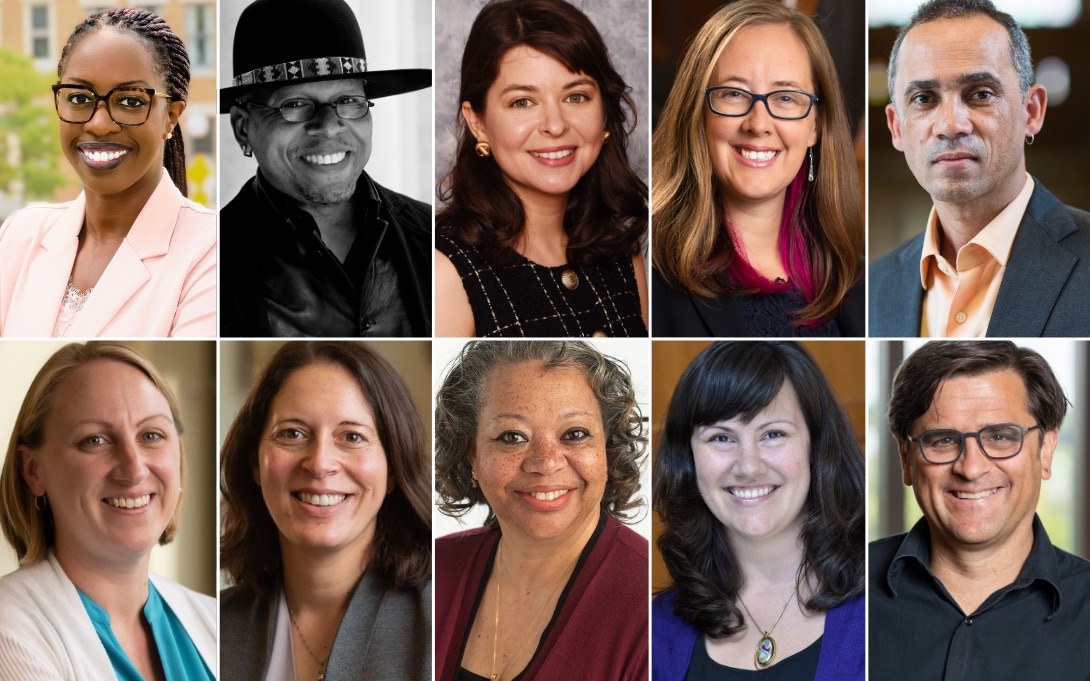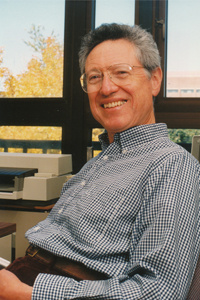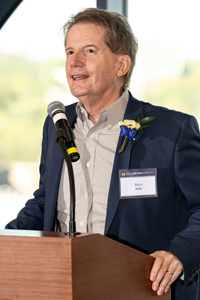
In December 2024, John Ayanian stepped down from his position as the founding Editor in Chief of JAMA Health Forum, the health policy journal of the JAMA Network.
As a member of the U.S. Institute of Peace’s Bipartisan Senior Study Group on the Sahel, Ambassador Kamissa Camara contributed to the publication of a final report and recommendations to help guide long-term U.S. and multilateral policy in the region. She also contributed to a book honoring President Mohamed Bazoum and was interviewed by the BBC on regional security and governance challenges related to the Economic Community of West African States.
As co-director of the Transnational Repression Project at the U-M Center for Political Studies, Christian Davenport hosted a webinar titled “Introducing the Transnational Repression Project: A Discussion of Subconcepts & Data.”
Kristina Fullerton Rico published “Deportation Fears Create Ripple Effects for Immigrants and Their Communities” in The Conversation.
Yousif Hassan published a book chapter titled “Machine Learning as a State-building Experiment: AI and Development in Africa,” in the October 2024 Oxford Handbook of the Sociology of Machine Learning. He also published “The Politics of Memory: NLP Models as Liberating Artifacts” in Science, Technology and Society.
Catherine Hausman spoke at the Detroit PBS Virtual Town Hall, “Climate and the Future of Energy,” and at the National Tax Association on the future of climate tax policy after the 2024 election. She also was a guest on Daniel Raimi’s podcast Resources Radio about electricity transmission policy.
In March, Yazier Henry delivered a talk at Harvard Law School’s Program on Law and Political Economy titled “The Constitutional State, Administrative Violence, and Democratic Responsibility.”
Morela Hernandez was appointed as associate editor at the Academy of Management Annals, a top-tier journal in the field of management and organizations.
Rusty Hills wrote an op-ed for the Detroit Free Press titled “Trump’s No Gerald Ford. He’s Not Even George W. Bush.” He spoke on analyzing voter trends in the 2024 election on a panel at Michigan State University. Hills also graded President Trump’s first Congressional address for the London Daily Mail.
Justin Holz’s co-authored paper, “High Frequency Location Data Shows That Race Affects the Likelihood of Being Stopped and Fined for Speeding,” was published in Science, March 2025.
In November 2024, Brian Jacob published “School Boards Before, During, and After the COVID-19 Pandemic” in American Educational Research Association Open. He also co-authored, with Christina Weiland, Samuel Owusu (MPP ’25), and others, “Transitional Kindergarten: The New Kid on the Early Learning Block” in Educational Researcher.
In February 2025, Stephanie Leiser and co-authors published “Responding to Decline: The Perspective of City Managers in Shrinking Cities in the United States” in the Journal of Urban Affairs.
Paula Lantz was named to the Lancet Commission on U.S. Societal Resilience in a Global Pandemic Age. Commissioners are charged with leveraging the best science, ethics, and practices to advance new approaches and frameworks that enable communities to be resilient in the face of pathogens that threaten interconnected health, environmental, economic, social, and political conditions. She also published “The Role of State Ballot Initiatives in State Policymaking Has Peaked” in the health policy journal Milbank Quarterly in December 2024.
Helen Levy was invited to continue as a member of the American Economic Association’s Committee on Economic Statistics for another three-year term. She also co-authored “The Impact of Health Insurance on Mortality” in the Annual Review of Public Health.
Responding to a judge’s request in the ongoing Detroit census litigation, Jeff Morenoff filed an expert’s report on the calculation of annual population estimates, which are consequential for the allocation of federal grant dollars.
Donald Moynihan gave the presidential address at the Association of Public Policy and Management conference and the keynote address at the Japanese Evaluation Society conference in Tokyo. He was appointed to the advisory board for the OECD Sludge Expert Panel. He also published “Rescuing State Capacity: Proceduralism, the New Politicization, and Public Policy” in the Journal of Policy Analysis and Management. He co-authored with Pamela Herd “Administrative Burdens in the Social Safety Net” in Journal of Economic Perspectives. He wrote an op-ed in The Atlantic titled “The DOGE Project will Backfire.”
Susan D. Page authored “A Smarter U.S. Assistance Strategy for Haiti” for the Council on Foreign Relations and “U.S. Race Relations and Foreign Policy” in the Michigan Journal of Race & Law. She also spoke on MSNBC, Al Jazeera, and ABC News Australia about Sudan and the Trump administration, and on NPR’s Weekend Edition about Trump’s foreign policy.
Shobita Parthasarathy has been invited to be a member of the prestigious Institute for Advanced Study in Princeton, NJ, where she will write a book that emphasizes inclusive innovation as a solution to global poverty and inequality, with a focus on India. As a panelist at the American Association for the Advancement of Science annual meeting, she reflected on the 50th anniversary of the Asilomar Conference and discussed the negative impact it had on scientists’ understanding of public concerns. She published an editorial in Science and was interviewed by the BBC on the same topic.
Natasha Pilkauskas was elected to the National Academy of Social Insurance. Pilkauskas, Luke Shaefer, and Katherine Michelmore published “The Expanded Child Tax Credit and Economic Wellbeing of Low-Income Families” in the Journal of Population Economics.
Molly Spencer won a grant from the Institute for the Humanities to attend the Op-Ed Project’s “Write to Change the World” workshop and was later invited to serve as an ambassador at future workshops.
David Thacher and co-author Jessica Gillooly (PhD ’20) presented at the Harvard Legal History Workshop in March. Their paper, “How the Public Became the Caller: The Emergence of Reactive Policing, 1880–1970,” was published in Law and Social Inquiry in April 2024.

Celeste Watkins-Hayes accepted an invitation to serve on the Presidential Advisory Council on HIV/AIDS, which provides strategic guidance on the prevention, treatment, and eradication of HIV/AIDS in the United States.
In Memoriam
Lawrence B. Mohr, Professor Emeritus of Political Science and Public Policy, passed away in early March at the age of 93. He was a beloved professor at U-M from 1966 to 1999. His colleague and close friend, John Chamberlin, noted Larry’s approach to organizations and program evaluation, and his emphasis on impact analysis, which provided breadth to courses and research coverage at the Ford School. A memorial service will be held on May 30, 2025 at the Michigan Union. Read his full obituary.

Fond farewell
Distinguished environmental scholar and political scientist Barry Rabe retired from the University of Michigan in December 2024. Rabe will continue his research, writing, and policy engagement in his post-Michigan career, periodically from Washington, DC. He will continue as a Nonresident Brookings Senior Fellow in the Governance Studies Program and as a Global Fellow at the Wilson Center’s Canada Institute. Read more.
More in State & Hill
Below, find the full, formatted spring 2025 edition of State & Hill. Click here to return to the spring 2025 S&H homepage.